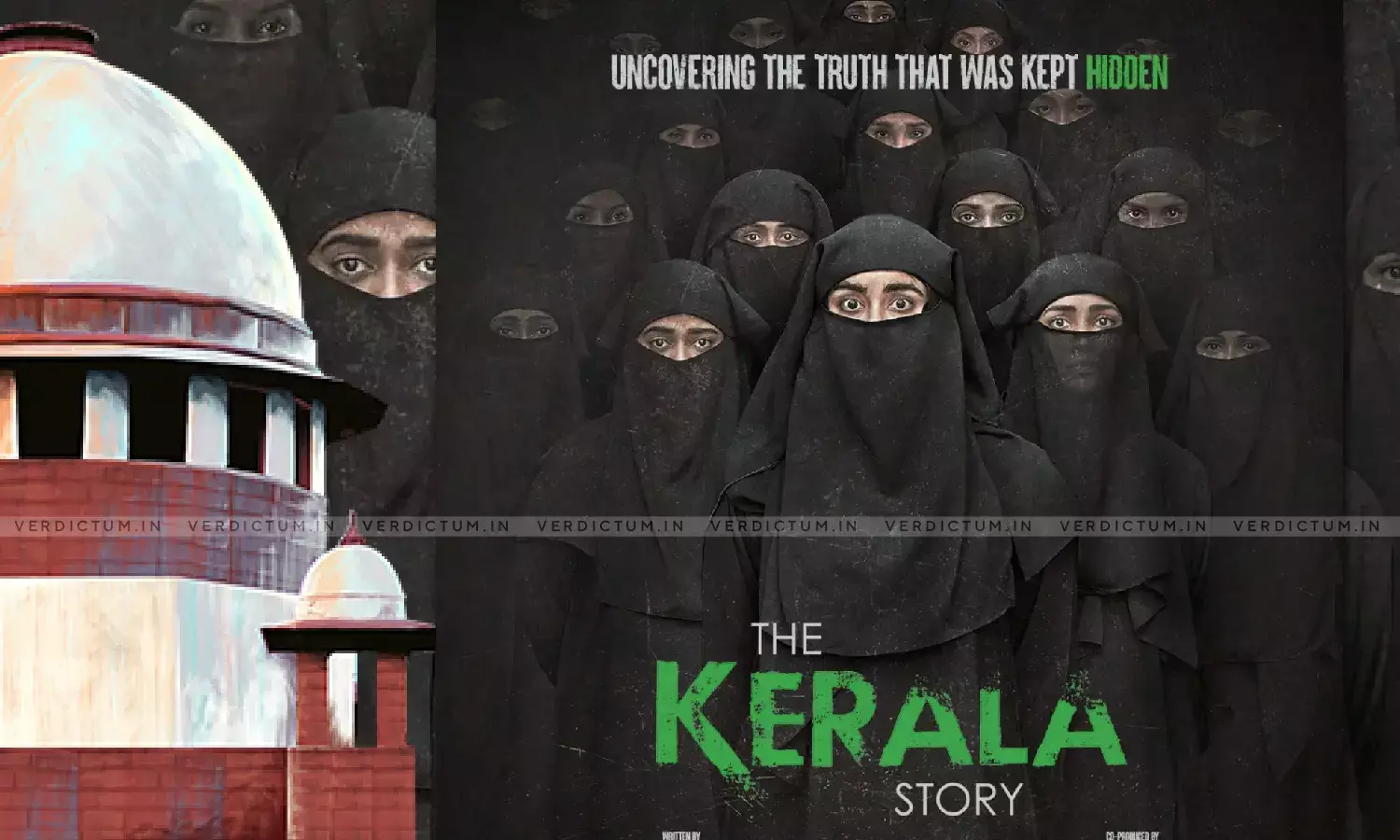Kerala Story| Viewers Coming Out Of Movie Hall Found Discussing Limiting Interaction With Muslims: West Bengal Before Apex Court
The West Bengal government has filed an affidavit before the Supreme Court defending its order banning the movie 'The Kerala Story' within the state. The affidavit has been filed opposing the plea filed by producers of the movie challenging the ban.
In its affidavit, the state claims that it has found through police surveillance when the movie was released in the state that the audience coming out of the movie halls were discussing among themselves to limit their interaction with Muslims and that Muslims ought to be taught a lesson.
The affidavit also says that the movie is "based on manipulated facts and contains hate speech in multiple scenes that may hurt communal sentiments and cause disharmony between the communities which will eventually lead to a law and order situation...".
The affidavit also says that the audience was making objectionable comments whenever they see a particular scene where Hindu or Christian girls are seen tortured. The state says that after it received intelligence reports, Police Personnel were deployed in civil clothes inside and outside the theatre where the movie was exhibited.
"During surveillance, it has been observed that the audience makes very objectionable comments whenever they see a particular scene where Hindu or Christian girls are seen tortured. It has also been observed that while coming out of movie halls people discuss among themselves to limit their interaction with Muslims and or that these Muslims ought to be taught a lesson", the affidavit says.
At the outset, the affidavit says that the writ petition is not maintainable since the Apex Court has previously declined to entertain petitions under Article 32 pertaining to the same movie. The affidavit is filed by the Officer on Special Duty and Ex-Officio Deputy Secretary of the Information and Cultural Affairs Department of the state.
The state also says that the Calcutta High Court is in seisin of various writ petitions on the same issue. The affidavit cites four writ petitions before the High Court challenging the ban. It says the petitioners before the Apex Court have combined two distinct issues pertaining to the state of West Bengal and the state of Tamil Nadu.
The affidavit says that no fundamental right of the petitioners has been violated and that the petitioners' rights under Article 19(1)(g) are not absolute, but subject to reasonable restrictions.
"...the movie, which is the subject matter of the present lis, is reportedly inspired by stories of 32,000 girls from the Hindu and Christian communities, who are missing from Kerala and have been recruited to the Islamic State of Iraq and Syria ("ISIS") after being converted to Islam", the affidavit says. The state says that the movie is banned considering the safety and security of the people of the state and that it is a policy decision.
The affidavit says that the Additional DGP and IG (law & order) received specific communications from other officers that "the content of the movie is highly controversial and is likely to cause breach of peace". It adds that isolated incidents were reported at various police stations.
The affidavit cites alleged incidents from the state of Maharashtra over social media posts about the movie and says that the impugned order prevented such incidents in West Bengal.
The state contends that its order was in legitimate exercise of power under Section 6(1) of the West Bengal Cinemas (Regulation) Act, 1954 and that challenge to the constitutionality of the said provision is unsustainable. The state claims that if the movie is exhibited, it will cause breach of peace in the state.
Earlier, the State of Tamil Nadu had filed a counter affidavit in the case, refuting allegations that the movie has been shadowbanned in the state.
Cause Title: Sunshine Pictures Pvt. Ltd. v. Union Of India [W.P.(C) No. 552/2023]




